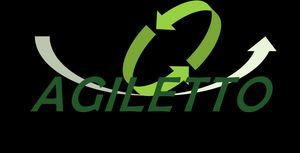Who’s Really Challenging Whom?
It might sound like a joke:
A Scrum Master, a Team Coach, and an Agile Coach walk into a café. Who does what – and who’s supposed to challenge whom?
But the question is real.

Because in many organizations today, these roles blur. The language is fuzzy. Expectations even fuzzier. And the person stepping into a role – whether Scrum Master, Team Coach, or Agile Coach – is often expected to do... everything.
Help the team.
Guide the system.
Coach the managers.
Drive the change.
Be invisible.
Be everywhere.
So what’s the actual difference?
I often get asked:
“What really separates a Scrum Master from a Team Coach or an Agile Coach?”
Here’s how I break it down.
Scrum Master – The Everyday Mover
The Scrum Master is close to the team. Not a project manager. Not a boss. But present.
Facilitates. Protects. Creates rhythm. Builds trust quietly – until there's enough space to ask:
“Why are we doing this?”
“What would happen if we tried something different?”
“What do you actually need right now?”
A good Scrum Master doesn’t push change. They sense readiness – and support the step.
Team Coach – The Bridge Between Team and System
The Team Coach often works across multiple teams. Observes, reflects, trains. Spots patterns.
Where the Scrum Master might get too embedded, the Team Coach stays one level out – noticing how language, roles, and structures reinforce old habits.
This is where change often starts to feel uncomfortable – for teams, for line managers, for the system itself.
But here's the catch: some teams call their Scrum Masters Team Coaches. And that’s fine—especially if they’re not doing Scrum at all.
Even that big fluffy framework uses the terms interchangeably nowadays.
But for me, there’s still a subtle distinction.
Agile Coach – The Systemic Provocateur
The Agile Coach operates further out in the system. Leadership teams. Structure. Strategy.
Not asking how the standup is going – but why we’re doing Agile at all.
They question alignment. Surface cultural debt. Hold up the mirror to power.
They don’t coach individuals toward better retrospectives. They design conditions for learning at scale.
No, it’s not “just a senior Scrum Master with a new title.” It’s a shift in focus – from delivery to design.
And Then... The Enterprise Agile Coach
Now and then, the room goes quiet.
Enter: the Enterprise Agile Coach.
Part transformation architect, part systems whisperer. Usually carrying yellow stickies, a thousand stories, and an uncanny ability to challenge a CEO and empathize with a developer in the same hour.
This role is rarely defined. But when it works, it’s not just about Agile – it’s about building an organization that can think, learn, and adapt on purpose.
And that’s something else entirely.
So, Who Is Challenging Whom?
The roles overlap. They flex. A strong Scrum Master might coach leaders. A skilled Agile Coach might jump in with a team. A Team Coach might reshape a culture.
The difference isn’t the title.
It’s where your attention goes, what you hold yourself accountable for – and how far you’re willing to reach.
So the real question isn’t which badge you wear.
It’s this:
“What does this team, in this system, need right now to grow?”
If you can listen – and challenge the team, the individual, or the system from where they are –
Then it matters a lot less what your job title says.
Last updated Apr 30, 2025
